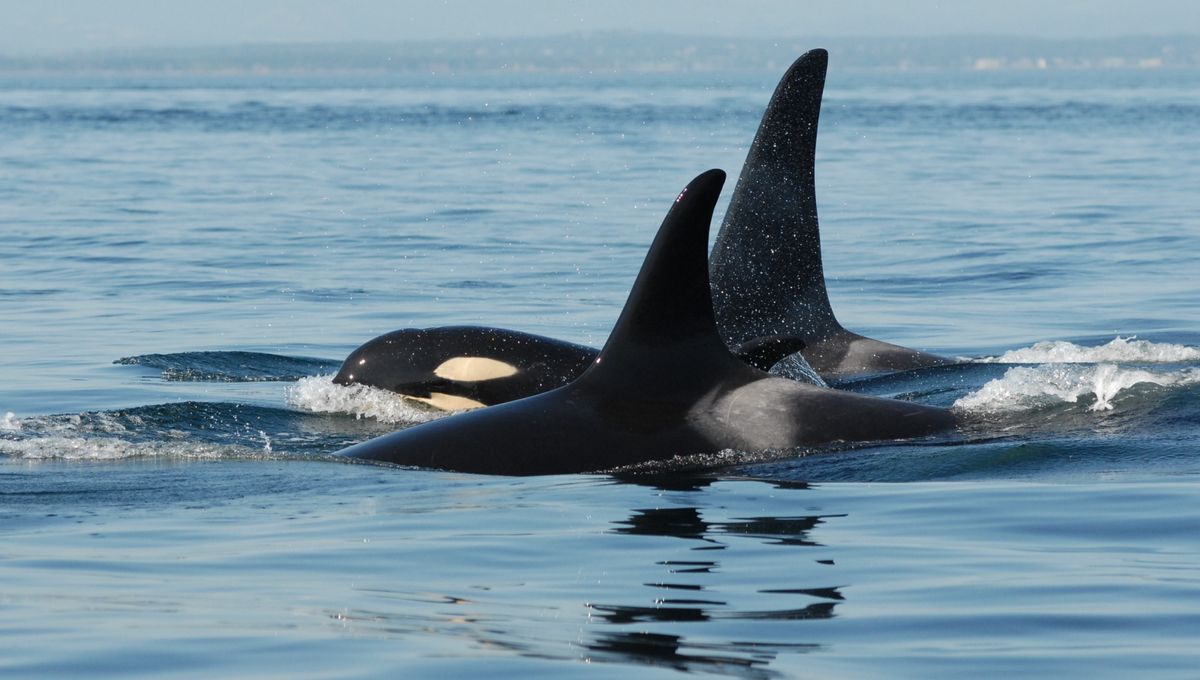
The ocean’s apex predators have been getting a bad rap recently – first, they were exposed for attacking boats in Europe and then an unflattering story about salmon hats came out. Now, in a further reminder they are not to be messed with, it’s been revealed that post-menopausal orca moms protect their sons from fights with other whales – a courtesy they don’t extend to their daughters.
In a new paper, scientists from the universities of Exeter and York, and the Center for Whale Research, studied southern resident orcas living off the Pacific Northwest coast. They looked specifically at scars, known as “tooth rake marks”, which are left when one whale scrapes their teeth across the skin of another. Killer whales have no natural predators, hence it’s reasonable to assume that such scars were inflicted by other orca.
Interestingly, the team found, males that had been hanging with their post-reproductive mothers had 35 percent fewer tooth marks than males without a mother or those whose mothers were still breeding.
“It was striking to see how directed the social support was,” senior author Darren Croft said in a statement. “If you have a post-reproductive mother who’s not your mother within the social group, there’s no benefit. It’s not that these females are performing a general policing role. These post-reproductive mothers are targeting the support they are giving to their sons.”
Menopause is unusual in the animal kingdom – aside from humans, only a few other species are known to experience it, and all of these are whales. Evolutionarily speaking, it is not exactly advantageous, and it remains a mystery why we, and certain cetaceans, spend so much of our lives not reproducing. Most whales, for example, live an average of 22 years after menopause.
However, this latest study adds to growing evidence that suggests female orcas that are no longer reproducing boost the chances of their offspring’s survival, particularly their sons. It is possible that by caring for and protecting their children and grandchildren, instead of competing with their daughters to breed, female orcas can more effectively ensure the continuation of their genes.
“We can’t say for sure why this changes after menopause, but one possibility is that ceasing breeding frees up time and energy for mothers to protect their sons,” lead author Charli Grimes said in another statement.
Daughters, meanwhile, do not receive the same protection – and this wouldn’t be the first time orca moms have been accused of favoritism toward their sons. Commenting on why this may be the case, Grimes explained: “Males can breed with multiple females, so they have more potential to pass on their mother’s genes.”
“Also, males breed with females outside their social group – so the burden of raising the calf falls on another pod.”
If you’re wondering how exactly orca mothers provide this protection, you wouldn’t be alone. The researchers, too, have asked this question, and while they can’t say for sure, “It’s possible that the older females use their experience to help their sons navigate social encounters with other whales,” Croft speculated.
“They will have previous experience of individuals in other pods and knowledge of their behaviour, and could therefore lead their sons away from potentially dangerous interactions.”
It’s unlikely, however, that they actually get involved in conflicts, as post-menopause females had the fewest tooth marks in the entire social unit.
“It’s fascinating to see this post-menopausal mother-son relationship deepening our understanding of both the intricate social structures in killer whale societies and the evolution of menopause in species beyond humans,” Professor Dan Franks, a co-author on the paper, concluded.
The study is published in Current Biology.
Source Link: Post-Menopause Orca Moms Protect Their Large Orca Sons From Whale Fights